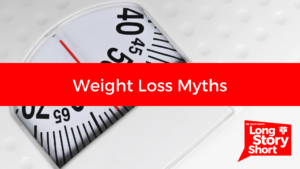Diabetes: Causes and Treatment Summary
• 8.8% of the world population has some form of diabetes
• Type one diabetes usually comes on in childhood and is when our immune systems, for reasons that are poorly understood, attack particular cells in our pancreas and make our pancreas quit producing insulin
• Type two diabetes is entirely different and generally comes on in adulthood. There’s not a lack of insulin, but the analogy is that the insulin is like a key that unlocks the door of the cells, but the key doesn’t fit
• The symptoms we see with type two diabetes are frequent urination, excessive thirst, problems with vision, sensation in nerves stops working as well as larger vessels become affected which can lead to brain disease or heart disease
• While medications are important to control type two diabetes nothing works as well as lifestyle changes such as eating healthy and adding exercise into one’s life
Full Text
I’m sure everybody knows someone with diabetes. 8.8% of the world population has some form of diabetes. I’m dr. David Long. I wanted to speak with you today about diabetes.
Broadly speaking, there are three types of diabetes. Type one, also known as insulin dependent diabetes, type two, known as adult onset diabetes. Or gestational diabetes. Gestational diabetes has to do with women getting diabetes during pregnancy. And it’s kind of a special case, typically managed by the obstetrician that’s managing the pregnancy.
Type one diabetes usually comes on in childhood. It’s when our immune systems, for reasons that are poorly understood, attack particular cells in our pancreas and make our pancreas quit producing insulin. That’s problematic because insulin is the key to the door of our cells. Insulin acts on the cells to let sugar glucose energy into the cells. If the energy can’t get in, then it just stays in the bloodstream, and that causes lots and lots of problems. So a type one insulin diabetic would be insulin dependent for the rest of their lives.
Type two diabetes is entirely different. Type two diabetes generally comes on in adulthood. And there’s not a lack of insulin. Oftentimes there’s actually too much insulin. But the analogy I like to make is that the insulin is like a key that unlocks the door of the cells, but the key doesn’t fit. It doesn’t unlock the door very well. And so your body often compensates by making more and more insulin to overcome the insulin resistance. And it makes the problem worse and worse and worse.
Type two diabetes: There’s a very strong genetic component to it, but it is still a disease of prosperity. Meaning that we see much higher rates of type two diabetes, where there’s obesity, where there’s high calorie, low nutritional value foods, when it’s a diet high in carbohydrates, when there’s little exercise. These are the things that predispose one to type two diabetes.
The symptoms that we see are frequent urination, uh, excessive thirst. And then after a while, we start to see problems with vision, the sensation, the nerves, and our fingers and toes stop working as well. Then as the larger vessels, larger blood vessels become affected, w see brain disease, heart disease, kidney disease. And so it’s vitally important that diabetes is caught early and managed well.
And while medications, for the type two diabetic medications are of paramount importance to control it, nothing works as well as lifestyle changes. If you will simply identify what is in your diet, that is white: sugar, bread, pasta, potatoes, and eat much less of that. Eat more colorful fruit foods, fruits, and vegetables, more water than any other, any other beverage.
And add some exercise into our lives, diabetes will get better. Diabetes usually can be managed, even cured by someone who changes their life in those ways. Now a genetic predisposition may make it such that a person always requires some medication, even if they’re careful to manage their diet, but usually a patient who really decides to change their life, to add exercise, to eat healthily, to eat a low carbohydrate diet, their diabetes will go away. Another thing that can be very helpful for that patient is to be sure that their metabolism is where we want it. We want to manage their thyroid well. We want to optimize their hormones, thyroid, testosterone, estrogen, because that sets the stage for the engine to burn the fuel in such a way that we can lose weight. Our blood pressure improves. Weight goes down, and diabetes improves.
The third type of diabetes is gestational diabetes. That’s a special class having to do with pregnant women. And I would leave that to the obstetrician to manage.
There are many ways to optimize one’s hormones, whether it’s thyroid or estrogen or testosterone. We can have injections, you can use patches, you can use a cream. My favorite is the pellet therapy because of its convenience and consistency and the quality of the product.
If any of that sounds interesting to you. Feel free to give us a call at the Lubbock Cooper health center. Click on the link below, and we’d be happy to discuss it more. Thank you.





 and then
and then